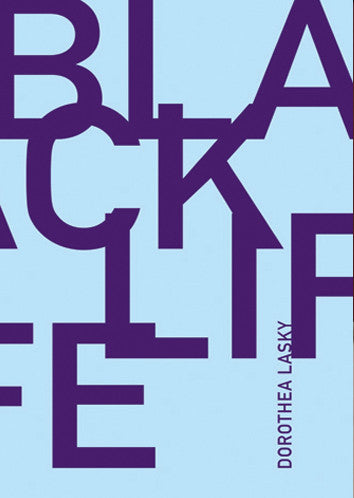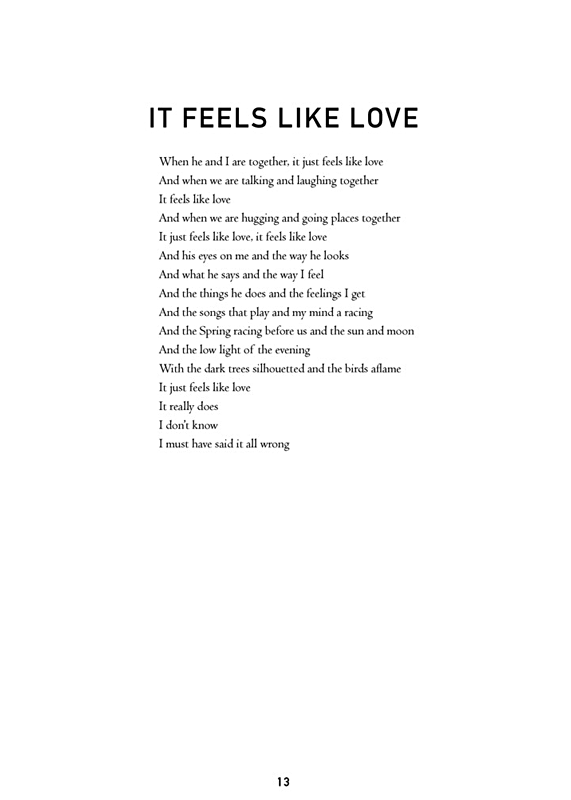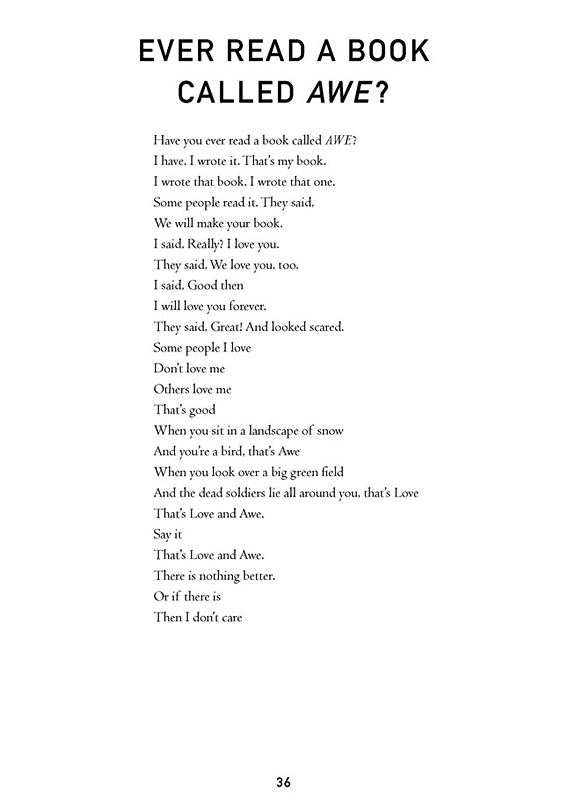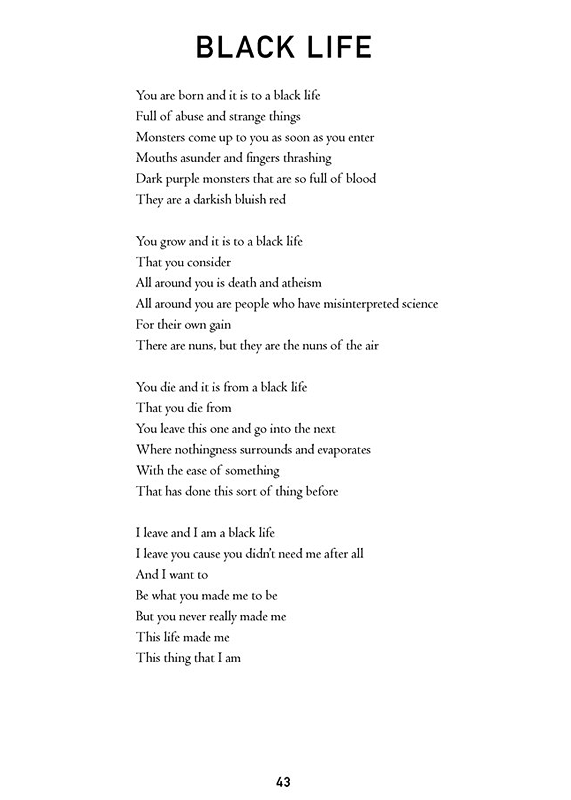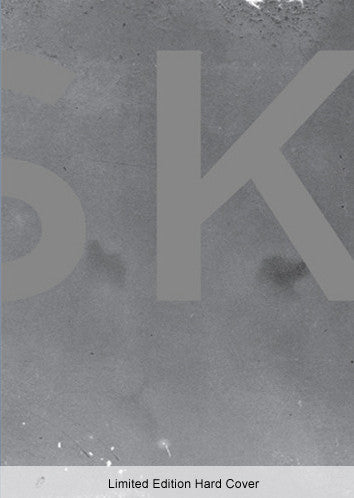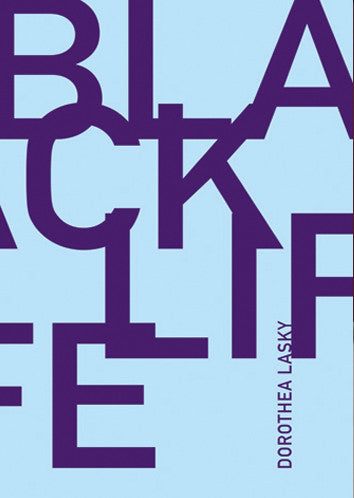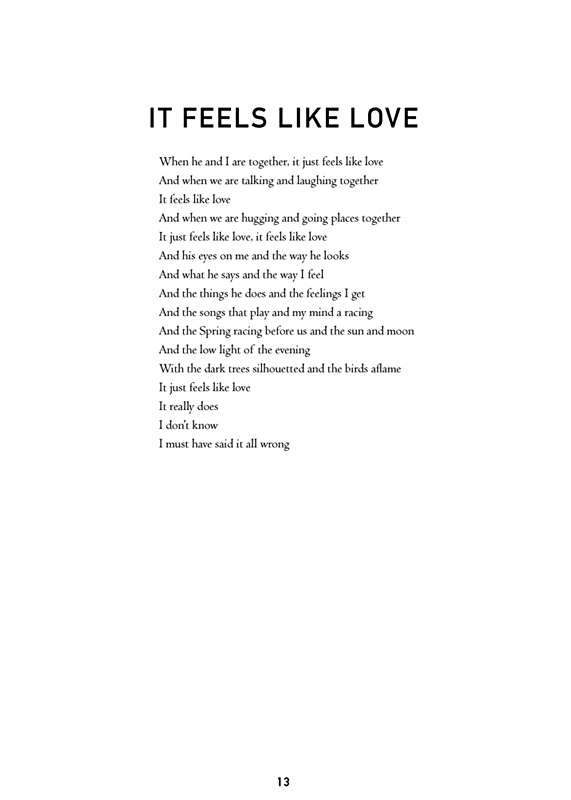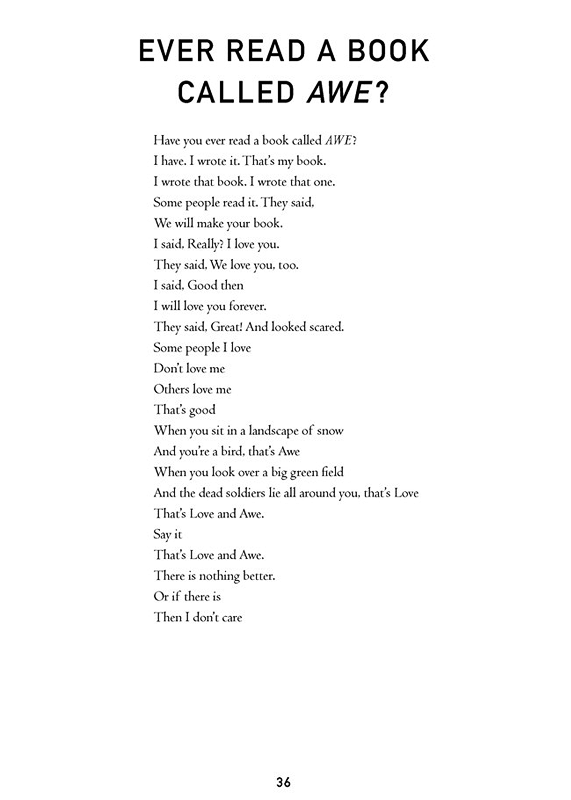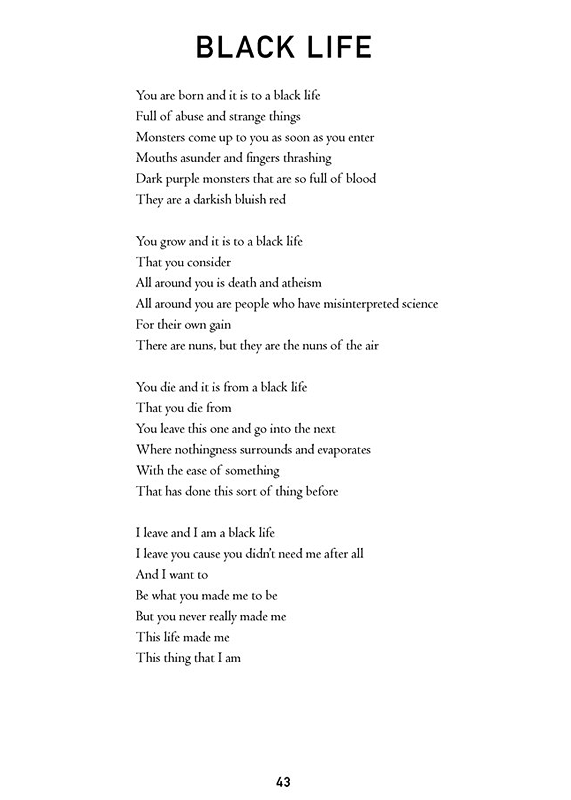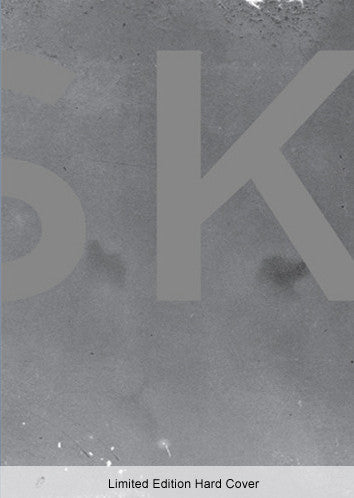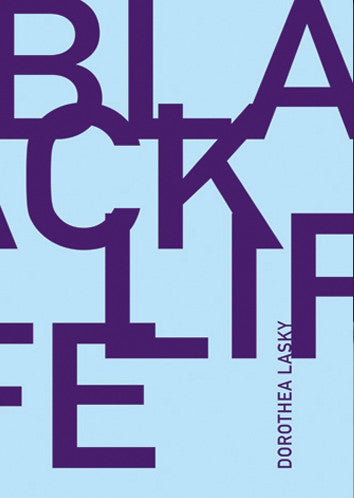
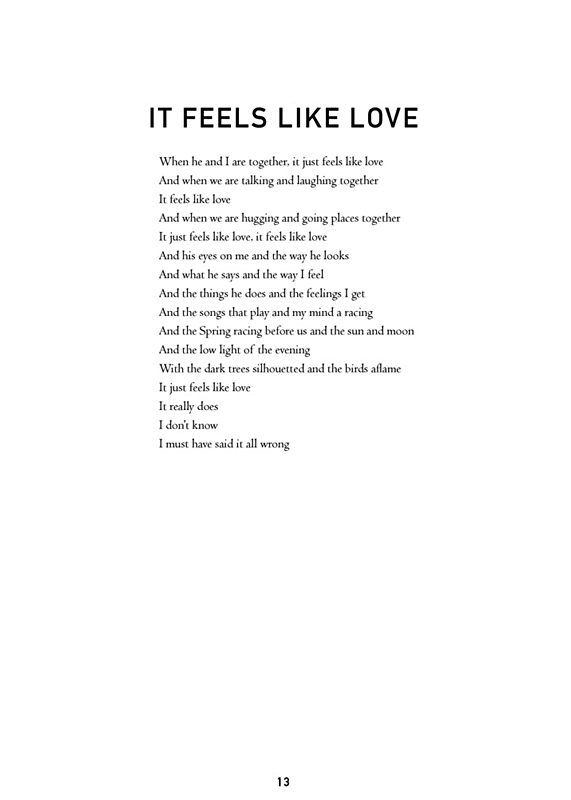
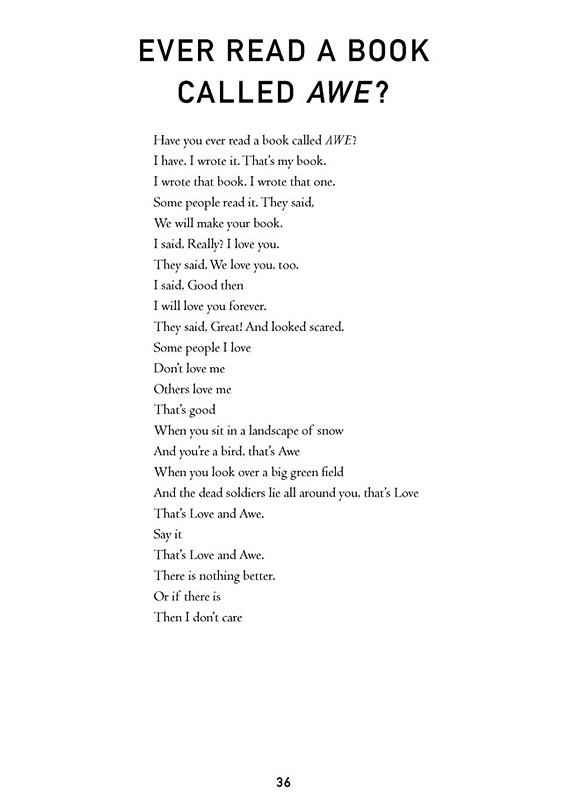
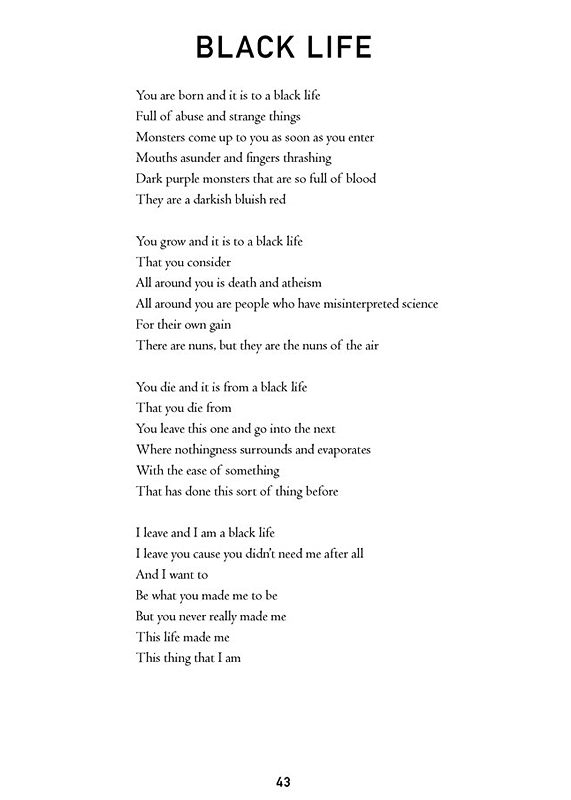
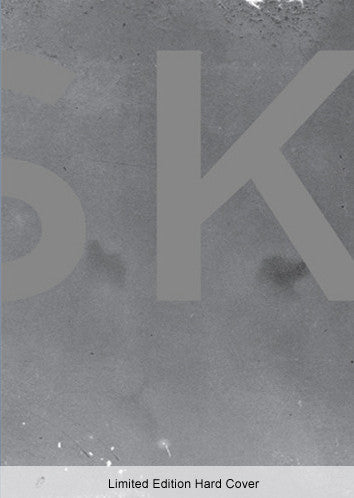
Black Life
Black Life
-
Emotion recollected not in tranquility, but in radically felt and affirming intensity.
In her brazen follow-up to AWE, Dorothea Lasky cries out beyond prophecy and confession, through to an even more powerful empathy. Infused with dark and urgent feeling, Black Life is the fullest existence of poetry, continually on the verge of becoming pure substance and sensation. -
...While [Lasky] is thus endlessly confused by reviewers surprised at her “earnest sincerity” with the allegedly self-absorbed “confessional” poets of mid-century, for me Lasky has most in common with a stylistically diverse line of usually forgotten and mostly soulsick writers who’ve inhabited language literally, and risked using the poem as a kind of depersonalizing, radically signifying material ... I think immediately of Penny Arcade, Chris Kraus, and Eileen Myles, Catullus, John Wieners, Ariana Reines, Tao Lin, Tracy Emin...
Robert Dewhurst, ON: Contemporary Practice #2
The beautiful thing about Lasky, in all her work, but particularly here, is her ability to create that same sense of earnestness, the sense that she is telling you a secret over dinner, in something as confessional as “Mike…” or in a poem that is a little more tongue in cheek like “Have You Ever Read a Book Called Awe?” Every poem counts in Black Life, and that would be an achievement in itself if the poems weren’t so damn fantastic.
InDigest Picks, InDigest Magazine
Dorothea Lasky is a poet of petulant grace. The particular way she does is she carves into the alphabet for poetry’s hurtfully buried, metastasized epiphanies of black life. Thence comes the fragments of jagged wonder she strings together to decorate her verse with pretty conflict. Her wonder (love and awe) is heavy and plain, stilted like she’s writing after a concussion, but the generalness of language (many fundamental ideas repeating, put forth directly) is thick—it spills over the edges of its meaning into the scary beyond. She meets herself in conversation with the space outside experience’s edges...
Lonely Christopher, The The Poetry
Though cut of the same cloth as her debut, Awe, this second book is more grown up, darker, burdened with greater weight and responsibility...
Publishers Weekly
Just being is more active and powerful than most people care to imagine, and that’s why Lasky’s Black Life isn’t something beyond and deeper than everyday life; it is the depth and beyond-ness that already exist in it.
Jake Fournier, I Will Always Be Drunk
Oh, the sentences, the odd narratives by Dorothea Lasky that make up her second poetry collection, Black Life. I admire her performative confidence, the arms of her poems calling look, look. Lasky is a poet of sentences, of gestures, both grand and small, and many times concurrently, even contradictory, but rarely in opposition. Lasky is the author of grand gestures, open-heart narratives and a sometimes too-wise, nearly naïve narrator with childlike cruelty...
Rob Mclennan
In voyeuristic times like these, it might just seem like the natural next step that a poet’s relationship to her poems would grow to resemble that between a reality star and the cameras hidden in her house. The “I’’s have it: Lasky is effervescently present in every word of her marvelous second volume...
Michael Brodeur, The Boston Globe
Dorothea Lasky’s new book, Black Life, brims with the chaos of real life and real people, fighting to express themselves when shiny and happy words aren’t sufficient.
Amy Henry, Gently Read Literature
Encountering a Dorothea Lasky poem requires a willingness to turn over all the rocks, to take a good, long look at the creepy-crawlies wriggling in the earth. She will force you to acknowledge the blackness of blood pumping underneath your skin or the claustrophobia of loneliness, but she will not allow you to forget there is light, and that it can exist in knowing another person... At her best, Lasky is “holding on to things” as tightly as she did in AWE, rendering images of moons filled with white feathers and the ghosts that inhabit our bodies with delightful precision. Black Life offers a glimpse of empathy and humanity, “the wildness beyond” in each of us, even when the future looks bleak.
Kristen Evans, Rain Taxi
The poems in Black Life absolutely sting and shine, often all at once. But the “shine” is what ultimately shows Lasky’s remarkable talents; I’ve read many great poems that are philosophical, many that are humorous, and many more that are sad or depressing, but I haven’t read many great poems that are joyful, that celebrate life. I don’t even think I realized this until I found myself “joying along” to Black Life.
Kristin Abraham, H_NGM_N
The collection is varied and intense. Being about a decade older than Lasky, there were moments when I wanted to tell her to relax a bit and slow down. To realize that not all problems will be resolved as quickly as we’d like, but that it’s okay to wait them out. The vivid descriptions and staccato action at times felt like it was too edgy to get close to, like the wild person at the party who gets the attention and the laughs but who is terrifying to be alone with for more than a moment. Yet the liveliness prevails and relays an enthusiasm that I hope essentially remains.
The Black Sheep Dances
The poems in Black Life feel like anti-poems. Forthright and studiedly conversational, they are brave (and audacious)—think rock lyric/nursery rhymes à la Hal Sirowitz or Eileen Myles. A tongue-in-cheek puerility coupled with a talky voice establishes presence and access. Humor and pathos bleed together in lines like, “I am just so very sad now.”
Jeffrey Cyphers Wright, the Brooklyn Rail
The first time I read Black Life, Lasky gave me permission to never ask for permission again; every time I’ve read it since, she’s reminded me of the exchange, of the delicate equilibrium a poet must strike to empower the reader at the same time she causes them to tremble..”
Katie Condon, Grist Magazine -
Dorothea Lasky is the author, most recently, of The Shining (October 2023), and Animal, published in 2019 in the Bagley Wright Lecture Series. She is also the author of Milk (Wave Books, 2018), Rome (Liveright/W.W. Norton, 2014), Thunderbird (Wave Books, 2012), Black Life (Wave Books, 2010), and AWE (Wave Books, 2007). She is also the author of six chapbooks: Matter: A Picturebook (Argos Books, 2012), The Blue Teratorn (Yes Yes Books, 2012), Poetry is Not a Project (Ugly Duckling Presse, 2010), Tourmaline (
Transmission Press, 2008), The Hatmaker’s Wife (2006), Art ( H_NGM_N Press, 2005), and Alphabets and Portraits (Anchorite Press, 2004). Born in St. Louis in 1978, she has poems that have appeared in American Poetry Review, Boston Review, Columbia Poetry Review, Gulf Coast, The Laurel Review, MAKE magazine, Phoebe, Poets & Writers Magazine, The New Yorker, Tin House, The Paris Review, and 6x6, among other places. She is the co-editor of Open the Door: How to Excite Young People About Poetry (McSweeney's, 2013), co-author of Astro Poets: Your Guides to the Zodiac (with Alex Dimitrov, Flatiron Books, 2019) and is a 2013 Bagley Wright Lecturer on Poetry. She holds a doctorate in creativity and education from the University of Pennsylvania, is a graduate of the MFA program for Poets and Writers at the University of Massachusetts-Amherst, and has been educated at Harvard University and Washington University. She has taught poetry at New York University, Wesleyan University, and Bennington College. Currently, she is an Associate Professor of Poetry at Columbia University's School of the Arts and lives in New York City.
Publication Date: April 1, 2010
ISBN# 9781933517438 (6.5x10 77pp, paperback and limited edition hardcover)
Couldn't load pickup availability
